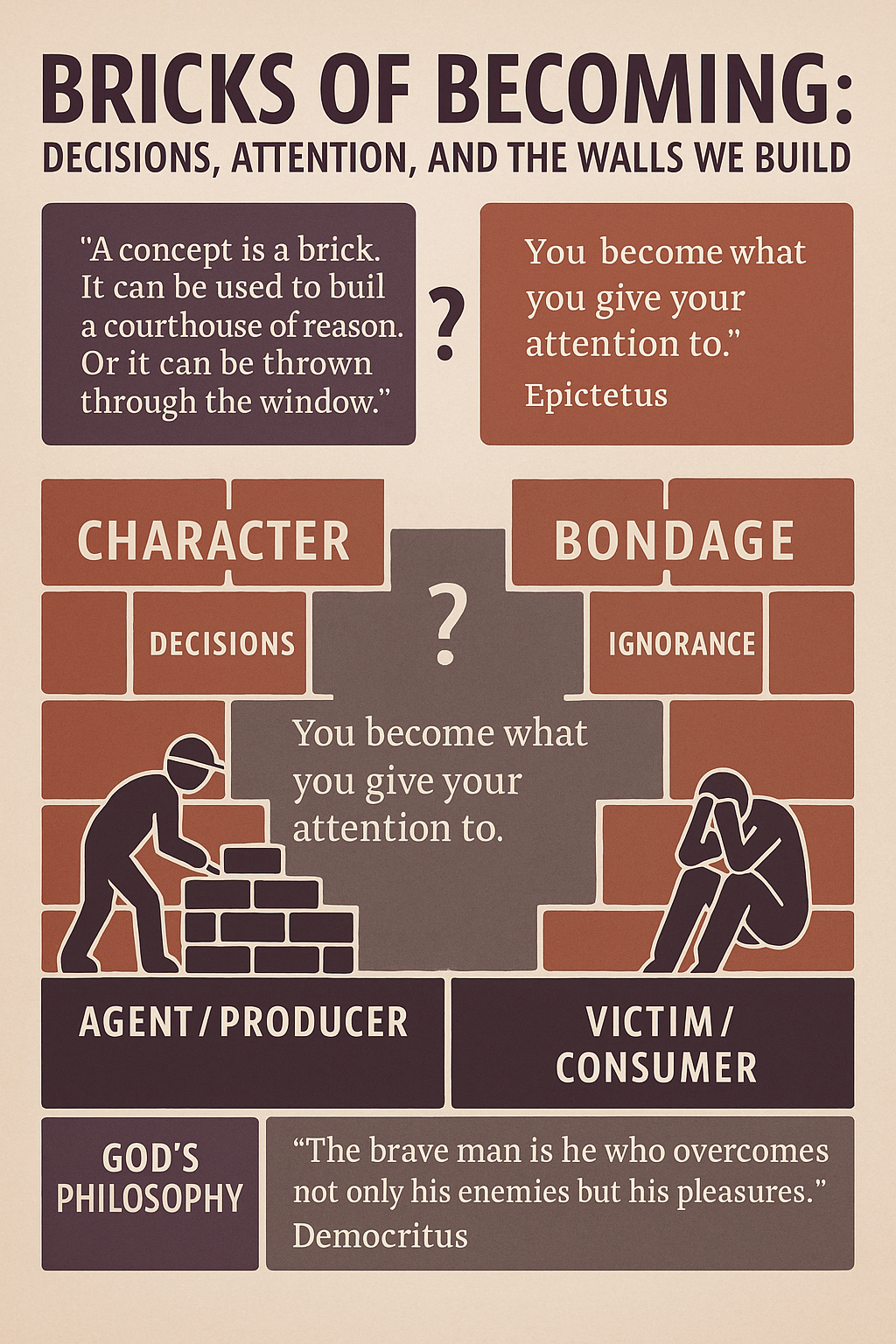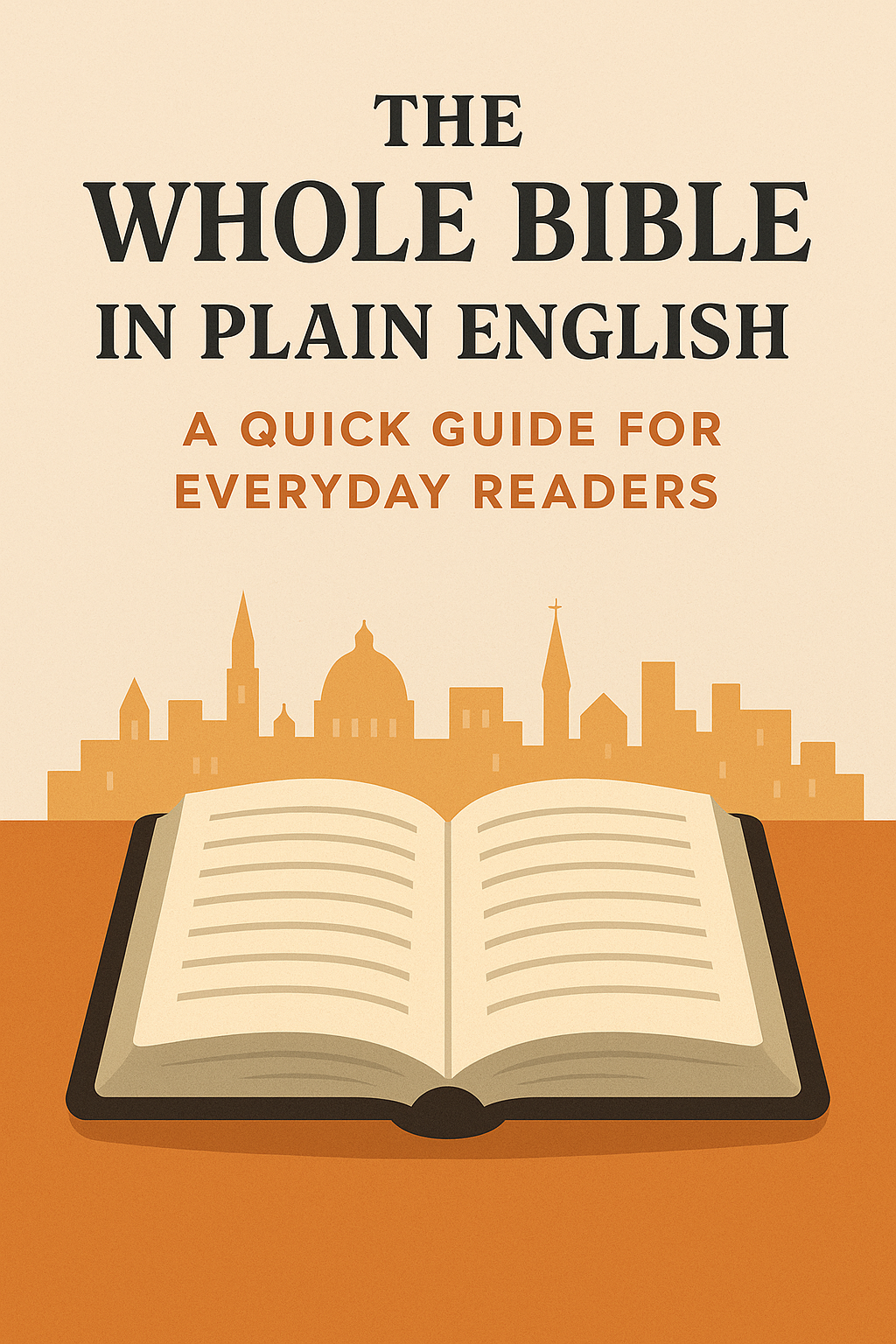How Character, Consumption, and Philosophy Shape Freedom or Bondage
In the words of Gilles Deleuze, “A concept is a brick. It can be used to build a courthouse of reason. Or it can be thrown through the window.” This vivid metaphor reminds us that ideas—like money, time, and attention—are not neutral. They are tools. And how we use these tools determines whether we build a fortress of freedom or a prison of self-bondage.
This is not just theory. It’s a daily decision.
Every Decision Is a Brick in the Wall of Character
Just as a builder lays each brick with intention, so too do we shape our identity, destiny, and legacy by our daily choices. We are always becoming something—whether consciously or by default. If we make decisions grounded in truth, virtue, and long-term meaning, we build a foundation of integrity. If we avoid responsibility, indulge in ignorance, or conform blindly to the world, we unwittingly stack bricks of rationalization, addiction, or apathy—walls that keep us from growth, freedom, and peace.
Epictetus warned:
“You become what you give your attention to.”
Where you invest your focus becomes your spiritual and psychological identity. What you repeatedly attend to—be it scripture or screens, wisdom or wickedness—shapes the neural, moral, and emotional architecture of your soul. You are, quite literally, building yourself—either toward divine potential or cultural captivity.
Agent vs. Victim: The Builder vs. the Broken
Every society is built on the character of its citizens. And every citizen is faced with a fundamental identity choice: Am I an Agent or a Victim? A Producer or Consumer?
- The Agent/Producer lives with intention. They see themselves as the creator of their life, not the product of circumstance. They take ownership of their time, money, energy, and emotional state.
- The Victim/Consumer surrenders control to external forces. They react rather than act. They hoard or indulge instead of invest. They spend their mental currency on complaint, distraction, and envy.
This dichotomy is not merely personal. It scales to families, communities, and nations.
- A producer family invests in principles, education, character, and interdependence.
- A consumer family is fractured by entitlement, distraction, and emotional absenteeism.
- A producer nation is built on the agency of free men and women.
- A victim nation crumbles under dependence, propaganda, and mob morality.
God vs. the World: Two Philosophies, Two Destinies
All of these choices flow downstream from one deeper decision: Whose philosophy do you follow? God’s, or the world’s?
The world offers pleasure, safety, and conformity—but at the cost of truth and responsibility. It preaches a doctrine of feelings over facts, self over sacrifice, consumption over contribution.
God, on the other hand, offers growth through challenge. He teaches truth, accountability, delayed gratification, and eternal identity. As Democritus said:
“The brave man is he who overcomes not only his enemies but his pleasures.”
God’s path asks us to overcome the seductive comforts that enslave us. To control appetites, to live in truth, to serve others, and to suffer well. This is not just moral. It’s psychological and societal liberation.
The Cost of Misused Bricks
Every moment you spend in distraction could have been invested in truth. Every dollar spent on vanity is a vote for a hollow world. Every excuse made is a brick thrown—not into the future you want to build, but through the window of the life you were meant to live.
And in the end, every wall you build—whether toward character or collapse—becomes your prison or your sanctuary.
You Are Always Building
Each day is an architectural act. You are laying bricks:
- In your habits
- In your family culture
- In your mental focus
- In your spiritual allegiance
The question is not whether you are building—but what you are building toward.
Will you use your bricks to build a temple of virtue, or a tomb of comfort?
Will you spend your attention on the eternal, or the immediate?
Will your life reflect the architecture of God—or the blueprint of a broken world?
Choose wisely. Every brick matters.





